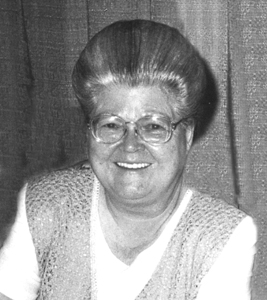NEWS FROM THE HILLS
 On this soft May day, the honeybees are working madly, buzzing from flower to flower in an excited frenzy. Swallowtail butterflies float effortlessly above the fragrant lilac blossoms, and small blue ones hover around the violets and dandelions. Fields of golden ragwort brighten the landscape as they add their own brand of sunshine.
On this soft May day, the honeybees are working madly, buzzing from flower to flower in an excited frenzy. Swallowtail butterflies float effortlessly above the fragrant lilac blossoms, and small blue ones hover around the violets and dandelions. Fields of golden ragwort brighten the landscape as they add their own brand of sunshine.
Up on the hill, the new calves kick up their heels and run across the meadow in pure joy of living. They pause to nibble at the tender new grass before running back to the mama cows for some liquid refreshment. The cows placidly continue to chew their cuds as their offspring frolic.
The hills are bursting forth in new green growth as it spreads her springtime magic over the land. The drive up Elk River is spectacular now. The redbud trees are in full bloom, masses of lavender blossoms that contrast with the white of the dogwoods. The flowering crabapple trees lend their red and pink hues to the scene, and it is a gorgeous sight—a feast for the eyes and senses.
Elk River is in a serene mood, with deep green pools and shoals sparkling in the sunlight. The fluttering leaves on the trees seem to grow larger every day, and greenness overspreads the hills. It is great to be alive and be able to roam the hills of West Virginia!
When God created the world, and looked down upon it and saw that it was “very good,” I wonder if he was looking at our hills in the springtime? I am thankful that God placed me right here, and I am content.
We did get some response on the word “fornent.” (I had misspelled it.) I should have asked my friend Amma Brown in the beginning. She told me that it was British dialect, a preposition meaning “directly opposite to, or “facing.” The second meaning is obsolete, and means “in connection with,” or “in regard to.” I was beginning to think it was a homemade word, but it is not.
Eloise Boggs, a historian and genealogist, (also a friend) writes that she had heard her Grandmother Boggs use the word “firninth” which was also used by some old timers. She wishes she could remember all the words her grandma used (so do I) that are not in use today. She remembers her grandmother telling her father that he had the most “biddable” animals she’d ever seen.
I, too, regret that we have lost so much of our beautiful Elizabethan language, as I love the old dialect. Once in awhile one of the old expressions comes naturally, and my grandchildren look at me in astonishment.
June Jones of Charleston writes that she hadn’t thought about the word “ferninth” for years, but she remembers many older folks using that term. She recalls two elderly sisters, known to her as “Ain’t” Will and “Ain’t” Ell (no relation, just a term of respect) using the word. They would talk of burying the potatoes or cabbage over “ferninth” the fence or “ferninth” the well house.
Her grandfather and his brother would refer to something strange that had happened as “Ain’t that mecurious?” The other one would reply, “Si, that is mecurious!”
She wonders what “si” meant, but I remember an old Irishman, when I was quite little, using that word. Pat McKown was quite a character in our neighborhood.
When we had a violent thunderstorm, my Grandpa O’Dell would comment, “That was a wonderful storm!” Well, it was full of wonder. These old terms that are handed down from our ancestors are picturesque and graphic. Like the old timey games, they are dying away. I hate to see them lost.
For Mary Moss of Ravenswood, here are the lyrics to “Green Grow the Lilacs:”
Green grow the lilacs all sparkling with dew
I’m lonely my darling since parting with you
But by our next meeting I hope to prove true
And change the green lilacs to red, white and blue.
I had a sweetheart but now I have none
Since she’s gone and left me, I care not for one
Since she’s gone and left me contented I’ll be
For she loves another one better than me.
I passed my love’s window both early and late
The look that she gave me, it makes my heart ache;
Oh the look that she gave me was painful to see
For she loves another one better than me.
I wrote love letters in rosy red lines
She sent me a letter all twisted in twine
Saying, keep your love letters and I will keep mine
Just write to your love and I’ll write to mine.
Jackie Winberg of Scott Depot is searching for the name of a medicinal bush that her grandmother used back in Hampshire County years ago. Her aunt remembers it as an evergreen bush, and seems to remember it had leaves, and not needles. It was about three feet tall, and her grandmother used the leaves and sometimes the stalks when there were serious accidents on the farm. It totally healed bad cuts and deep injuries. Does anyone have any idea what it was?
- Celebrating 20 Years Of Community At The Stand - April 12, 2024
- First Positive Case Of Chronic Wasting Disease In Indiana - April 12, 2024
- Southwest Allen County Schools Embark On Major Tree Plantings - April 12, 2024


